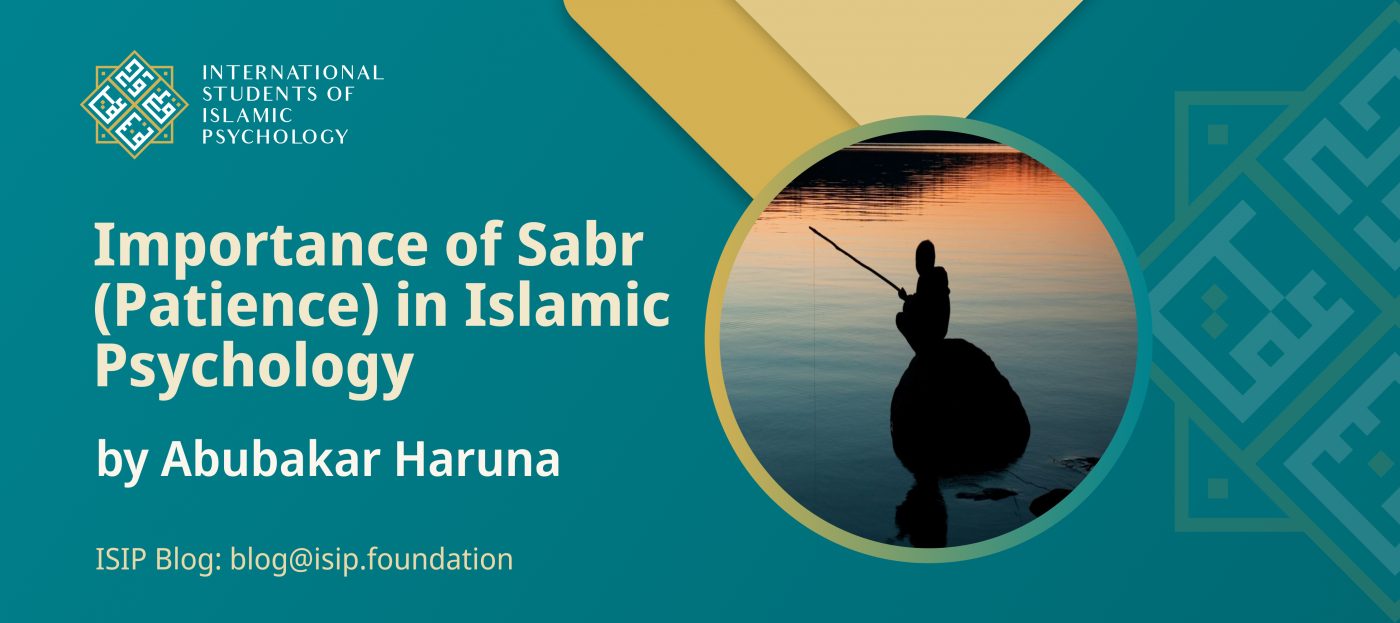
By Abubakar Haruna
In Western philosophy, patience, often referred to as “sabr” in Arabic, is seen as a virtue associated with enduring challenges without complaint. Aristotle emphasized the importance of patience in achieving moral excellence, stating that it is a key element in developing a virtuous character (Aristotle, “Nicomachean Ethics”). Similarly, Christian teachings highlight patience as a virtue, with biblical references such as James 5:7 emphasizing the endurance of hardships.
In Arabic culture, “sabr” holds a significant role, often rooted in Islamic teachings. The Quran repeatedly mentions the value of patience, associating it with righteousness and perseverance through trials. One notable verse is Surah Al-Baqarah (2:155), which states, “And We will surely test you with something of fear and hunger and a loss of wealth and lives and fruits, but give good tidings to the patient.” Islamic scholars, including Al-Ghazali, have expounded on the importance of “sabr” in attaining spiritual growth and navigating life’s challenges.
These perspectives collectively underscore the universal recognition of patience as a virtue, both in Western and Arabic traditions, with its roots extending into philosophical and religious frameworks.
From a Western philosophical standpoint, philosophers like Seneca and Epictetus, part of the Stoic tradition, also emphasized the significance of patience in dealing with life’s adversities. Seneca, in his letters, highlighted the Stoic principle of enduring hardship with equanimity, asserting that patience is a key component of maintaining inner tranquility (Seneca, “Letters from a Stoic”). Epictetus, too, stressed the importance of mastering one’s reactions to external events, emphasizing that true freedom lies in exercising patience and accepting what cannot be changed (Epictetus, “Enchiridion”).
In Islamic Psychology, “sabr” (patience) holds a central position as a psychological and spiritual virtue. Rooted in Quranic teachings and Prophetic traditions, patience is viewed as a multifaceted concept that encompasses endurance, perseverance, and steadfastness in the face of adversity.
The Quran explicitly mentions patience in numerous verses, linking it to faith and righteousness. For instance, Surah Al-Baqarah (2:286) emphasizes that Allah does not burden a soul beyond its capacity and encourages believers to seek His help through patience and prayer. This integration of patience into the framework of seeking divine assistance is a foundational aspect of Islamic Psychology.
Prophet Muhammad (peace be upon him) serves as an exemplar of patience in Islamic tradition. His life is replete with instances where he displayed remarkable forbearance, even in the face of intense hardships. The Hadith literature contains numerous narrations highlighting the Prophet’s teachings on patience, emphasizing its transformative power on one’s mental and spiritual state.
Islamic scholars, such as Ibn Qayyim Al-Jawziyya, have extensively explored the psychological dimensions of patience. In his work “The Path to Patience,” he delves into the intricate interplay between patience and emotional well-being, highlighting how cultivating patience leads to inner tranquillity and resilience. Additionally, Al-Ghazali, in his masterpiece “Ihya Ulum al-Din,” underscores the role of patience in purifying the soul and achieving spiritual growth.
In Islamic Psychology, the importance of “sabr” (patience) is underscored by its profound impact on individual well-being, spiritual growth, and the development of a resilient psyche. This significance is deeply rooted in Quranic verses and the teachings of Prophet Muhammad (peace be upon him).
Spiritual Growth:
The Qur’an emphasizes the correlation between patience and spiritual elevation. Surah Al-Baqarah (2:155-157) conveys that those who endure trials with patience are promised blessings and closeness to Allah. This connection between patience and spiritual development highlights its pivotal role in the Islamic psychological framework.
Emotional Resilience:
Patience in the face of adversity is seen as a means of emotional resilience. Ibn Qayyim Al-Jawziyya, in his work “The Path to Patience,” discusses how cultivating patience contributes to emotional stability and the ability to navigate life’s challenges without succumbing to negative emotions.
Positive Coping Mechanism:
Islamic Psychology advocates for patience as a positive coping mechanism. Rather than reacting impulsively to hardships, patience encourages a measured and thoughtful response. This aligns with the Prophetic tradition, where the Prophet Muhammad (peace be upon him) exemplified patience in various situations, offering a model for believers to emulate.
Self-Control and Discipline:
Patience involves self-control and discipline over one’s desires and reactions. This aspect is in harmony with the teachings of Islam that emphasize self-discipline as a path to righteousness. The Quran mentions in Surah Al-Imran (3:200) that those who exercise patience attain a higher level of God-consciousness.
Healing and Redemption:
Patience is viewed as a source of healing for psychological wounds. Surah Ash-Sharh (94:5-6) indicates that with hardship comes ease, and this promise encourages believers to endure difficulties with patience, knowing that relief and healing are inherent in persevering through challenges.
In conclusion, the importance of “sabr” in Islamic Psychology lies in its role as a transformative force that not only fosters spiritual growth but also contributes to emotional resilience, positive coping, self-discipline, and healing. These psychological dimensions are interwoven with the holistic approach of Islam, guiding believers towards a balanced and resilient mental state.

Interested
Fantastic. it is an individual obligation to make himself or herself a better person.